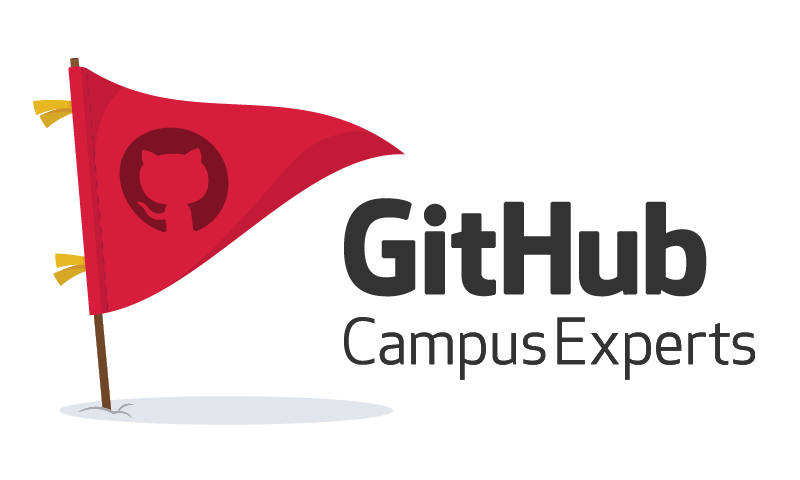PRO-TIP This repository generates a lot of notifications. You should read our guide on managing notifications.
This README explains how to get started with the training, and how to become a Campus Expert. By participating in the Campus Expert program, you agree to the terms and to abide by the code of conduct.
This issue contains announcements and latest news about the training, features and benefits for you. You should subscribe to this issue so you're always able to participate in the latest cool things!
People learn better when they can learn with a community of likeminded peers. A Campus Expert is a student trained to build a strong technical community, on campus. As well as training, Campus Experts have access to resources and support from GitHub, such as swag, sponsorship, and the opportunity to attend events like GitHub Universe.
To become a Campus Expert, you must complete the following:
Please bear in mind the following requirements:
- Campus Experts must be 18 years of age and over.
- You must not be within 3 months of finishing your course of study.
- There is a limit to the number of Campus Experts per university. This limit is dependent on several factors. If in doubt, please check through one of the support channels listed below.
It's important to remember that Campus Experts is about improving the community on your campus. The modules that you complete before completing your application should be ones that will help you meet your impact proposal: choosing a module on a topic that you are already confident in will not teach you further useful skills that you can use to help your peers. During the application to become a Campus Expert, your module choices will be evaluated against how well they address the needs of your impact proposal.
Once you have completed the necessary modules, and if you are within the requirements, you can complete the application module. Once complete, we will review your application as soon as possible.
Training modules help you learn skills that are important towards building technical communities. A training module contains a video tutorial, a written alternative to the video, and assignments you must complete to progress in the module.
PLEASE NOTE: We try to accommodate a variety of learning styles. The videos are not compulsory, unless otherwise stated, and we replicate all content in plain text in the README.md for each module. Most modules also have a full transcript of the video, found in the resources directory.
Every Campus Expert should start with Module 0, Getting Started. If you are familiar with GitHub, you can skip straight to the instructions on completing an exercise. During this module, you will gain a much better understanding of your community, and what you need to learn in order to make your community shine. Completing the Introduction module will guide your further module choices.
It's important to remember that Campus Experts is about improving the community on your campus. You should select modules that will help you do that: choosing a module on a topic that you are already confident in will not teach you further useful skills that you can use to help your peers. During the application to become a Campus Expert, your module choices will be evaluated against how well they address the needs of your impact proposal.
The currently available training modules are:
- Module 0 - Getting started (Compulsory)
- Module 1 - Introduction (Compulsory)
- Module 2 - Community management
- Module 3 - Public speaking
- Module 4 - Workshop development
- Module 5 - Technical writing
- Module 6 - Fundraising
- Module 7 - Opensource
- Module 8 - GraphQL
- Module 9 - Hubot
- Module 10 - Opensource clubs
- Module 11 - Git tips and tricks
- Module 12 - Electron
- Module 13 - Atom
- Module 14 - Github Pages
- ...
- Module n+1 - Your application!
When you complete the training and become a Campus Expert, you have access to benefits and extra support from GitHub.
Campus Expert benefits depend on the training modules completed. Each training module awards access to a different set of related benefits, described in the README of the training module. As a Campus Expert completes more training modules, they will gain access to more resources to use to help their community. Benefits range from free stickers and cheat sheets for your school, to event/hackathon sponsorships, to travel support to attend GitHub events and conferences.
In addition to material resources and benefits, Campus Experts gain access to regular webinars and guest talks from industry experts, and spaces to collaborate with other Campus Experts and GitHubbers.
A full list of benefits currently available can be found here.
During the Introduction module, you will define and set goals for your community. As a Campus Expert, you are expected to meet these goals, and build the best community for your campus. We at GitHub understand that you are busy students, trying to make your campus a better place. This is why you set your own community goals, and participate in as much of the training as you need to achieve those goals.
When you become a Campus Expert, you gain access to tools that help you make resource requests, and collaborate with GitHub Staff and other Campus Experts.
Campus Experts is about your community, not becoming a Git master. However, Campus Experts and the training does primarily take place through GitHub, so some Git/GitHub knowledge is helpful. You can learn everything you need to complete the training here.
You can find detailed support instructions here.
